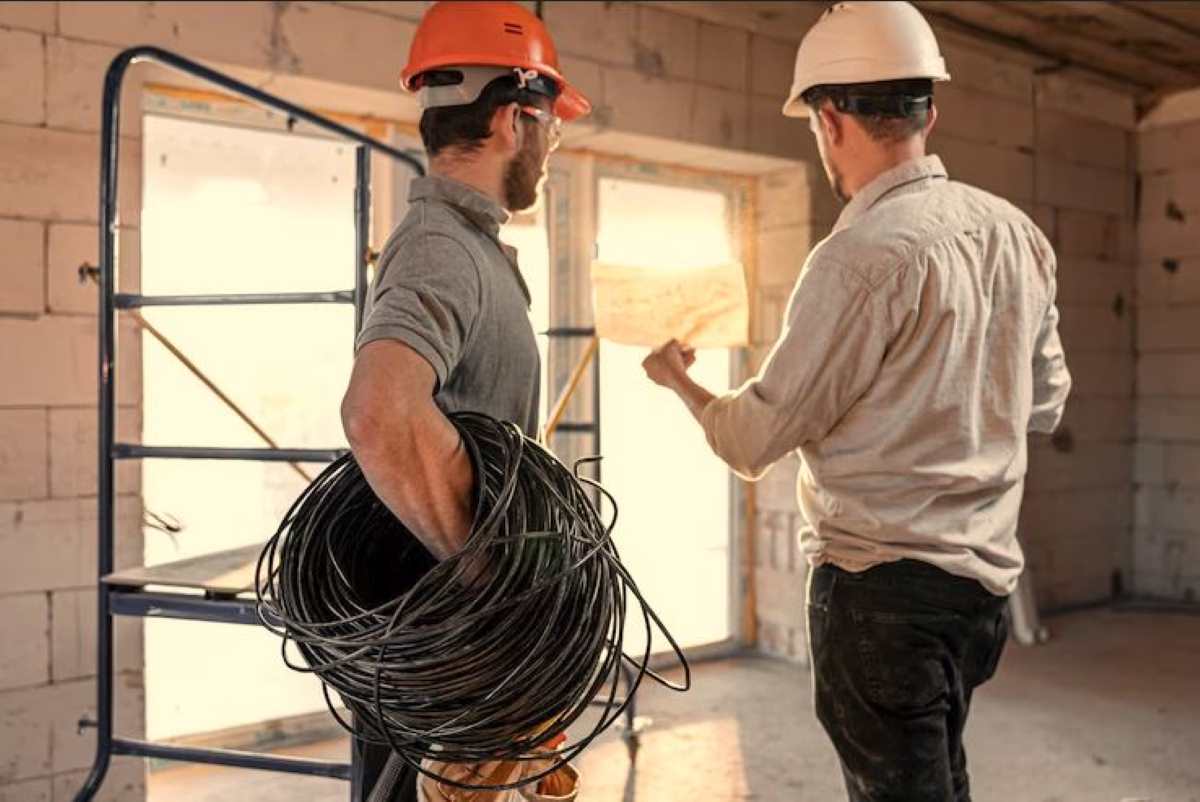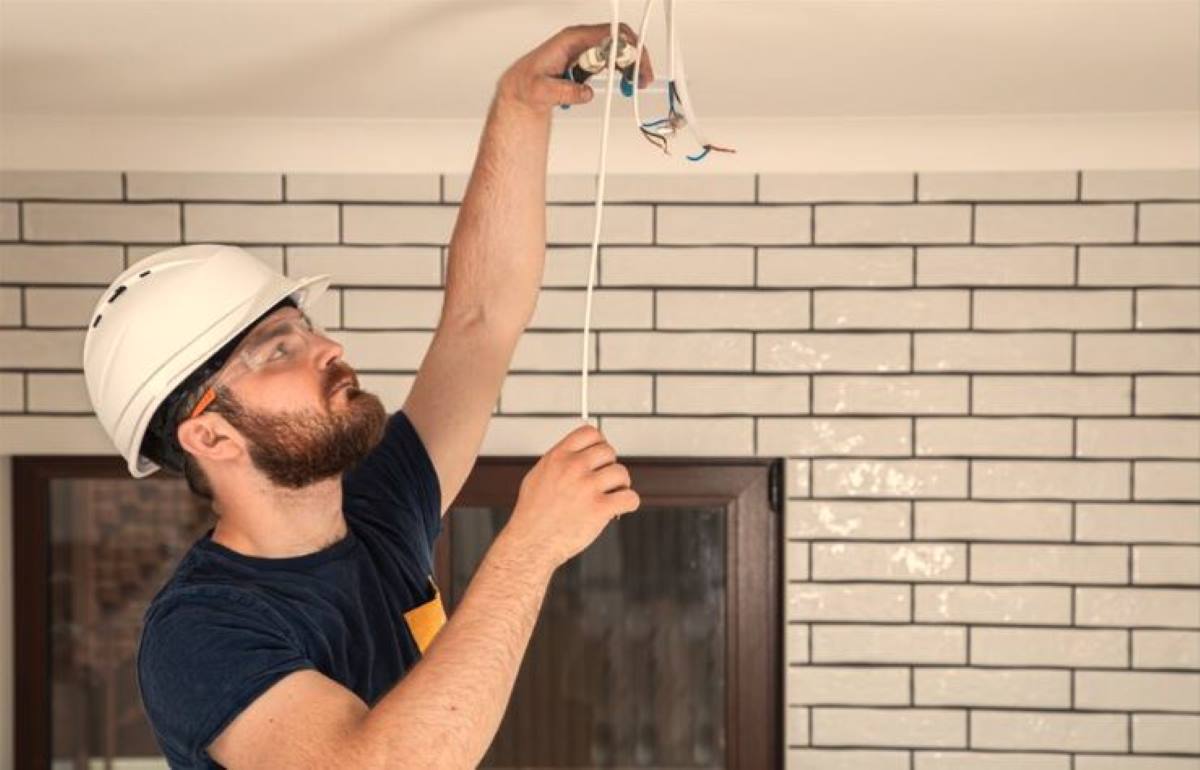
How to Choose the Right Electrician For Your New Home Post-Relocation
Moving into a new home is a momentous occasion, filled with anticipation and excitement for the possibilities that lie ahead. However, amidst the flurry of activity that comes with relocation, it’s easy to overlook critical details, such as the condition of the electrical systems in your new abode. Yet, ensuring that these systems are in top-notch condition is essential for the safety, functionality, and comfort of your home.
Electrical work is not something to be taken lightly. It requires precision, expertise, and adherence to strict safety standards. From installing new fixtures to repairing existing wiring, the complexity of electrical tasks underscores the importance of hiring a qualified electrician. Here’s a comprehensive guide on how to choose the right electrician for your new home relocation.
Assess Your Electrical Needs
Assessing your electrical needs is the crucial first step in finding the right electrician for your new home post-relocation. Here’s why it’s essential and how to go about it:
1. Identifying Specific Requirements
Take stock of your home’s electrical situation. Do you need additional outlets in certain rooms? Are there existing fixtures that need upgrading or replacement? Are there any electrical issues, such as flickering lights or tripping circuit breakers, that require attention? By pinpointing specific needs, you can communicate them clearly to potential electricians in North Hollywood, and ensure they have the necessary expertise to address them.
2. Determining Scope of Work
Assess the scale of the electrical work required. Are you looking for minor repairs and maintenance, such as fixing a faulty switch or outlet? Or do you need more extensive electrical upgrades, such as rewiring or installing a new circuit panel? Understanding the scope of work will help you prioritize tasks and allocate your budget accordingly.

3. Safety and Compliance
Assessing your electrical needs also involves ensuring the safety and compliance of your home’s electrical systems. Are there any safety hazards, such as exposed wiring or outdated components, that need to be addressed? Are your electrical systems compliant with local building codes and regulations? Prioritize tasks that address safety concerns and bring your home up to code to prevent accidents and legal issues.
Research Local Electricians
Researching local electricians is a crucial step in finding the right professional to meet your electrical needs. Here’s why it’s important and how to go about it:
1. Accessibility
Choosing a local electrician ensures prompt response times and easy accessibility. In case of emergencies or urgent repairs, a local electrician can quickly reach your location to address the issue, minimizing downtime and inconvenience.
2. Community Reputation
Researching local electricians allows you to tap into the collective wisdom of your community. Seek recommendations from friends, family, neighbors, and colleagues who have used the services of local electricians. Their firsthand experiences can provide valuable insights into the quality of service, professionalism, and reliability of different electricians.
3. Communication and Customer Service
Pay attention to the communication style and customer service of local electricians. Choose electricians who are responsive, courteous, and attentive to your needs. Effective communication is essential for a successful electrical project, so opt for electricians who prioritize clear and open communication throughout the process.
Verify Credentials and Licensing
Verifying the credentials and licensing of potential electricians is a critical step in ensuring the safety and quality of electrical work performed in your home. Here’s why it’s essential and how to go about it:
1. Legal Compliance
Hiring a licensed electrician ensures compliance with local laws, regulations, and building codes. Electrical work is highly regulated for safety reasons, and licensing requirements vary by state and locality. By verifying that the electrician holds the necessary licenses and certifications, you can rest assured that they have met the legal standards to perform electrical work in your area.
2. Training and Competency
Licensing requirements typically involve completing formal education and training programs, as well as passing examinations to demonstrate competency in the field of electrical work. By hiring a licensed electrician, you’re choosing a professional who has undergone rigorous training and has the knowledge and skills to perform electrical tasks safely and effectively.
3. Quality Assurance
Licensing is a form of quality assurance, indicating that the electrician is committed to upholding industry standards and best practices. Licensed electricians are held to higher professional standards and are accountable for the quality of their work. They are more likely to adhere to safety protocols, use proper techniques and materials, and deliver satisfactory results.
Experience and Expertise
When it comes to the electrical systems in your home, experience and expertise are paramount. Here’s why prioritizing these qualities in an electrician is crucial, along with some tips on how to find an experienced and knowledgeable professional:

1. Complexity of Electrical Work
Electrical systems are intricate and interconnected, requiring a deep understanding of electrical principles, wiring diagrams, and safety protocols. Experienced electricians have encountered a wide range of electrical issues and are adept at troubleshooting complex problems. Their extensive knowledge allows them to navigate the intricacies of electrical systems with confidence and precision.
2. Safety and Compliance
Electrical work must be performed by strict safety standards and building codes to prevent hazards such as electrical shocks, fires, and property damage. Experienced electricians are well-versed in safety protocols and compliance requirements, ensuring that all work is conducted safely and meets regulatory standards. By hiring an experienced electrician, you can have peace of mind knowing that your electrical systems are in capable hands.
3. Problem-Solving Skills
Electrical issues can be challenging to diagnose and resolve, requiring critical thinking and problem-solving skills. Experienced electricians have encountered a variety of electrical problems throughout their careers and have honed their ability to identify root causes and implement effective solutions. Whether it’s troubleshooting a malfunctioning circuit or upgrading outdated wiring, experienced electricians approach each task with a systematic and analytical mindset.
Insurance Coverage
Verifying an electrician’s insurance coverage is a crucial step in protecting yourself and your property during electrical work. Here’s why insurance coverage is important and how to ensure that the electrician you hire is adequately insured:
1. Liability Protection
Electrical work involves inherent risks, including the potential for accidents, property damage, or injuries to workers or bystanders. Liability insurance provides financial protection in the event that you or your property suffers harm as a result of the electrician’s work. Without adequate insurance coverage, you could be held liable for any damages or injuries that occur on your property during the electrical project.
2. Worker’s Compensation
Worker’s compensation insurance is essential for protecting electricians and their employees in the event of work-related injuries or accidents. If an electrician or their team member is injured while working on your property, worker’s compensation insurance covers their medical expenses and lost wages, reducing your liability as the property owner.
3. Bonding
In addition to liability insurance and employee compensation, some electricians may also carry surety bonds as an extra layer of protection for their clients. Surety bonds provide financial compensation if the electrician fails to fulfill their contractual obligations or breaches the terms of their agreement. While not mandatory, bonding can offer additional peace of mind for homeowners hiring electricians for large or complex projects.
Communication and Professionalism
Communication and professionalism are fundamental aspects of any successful electrical project. Here’s why they’re important and how to evaluate them when selecting an electrician:
1. Clear Communication
Effective communication between you and your electrician is essential for ensuring that your needs and expectations are understood and met. From discussing project requirements and timelines to addressing any concerns or questions that may arise, clear communication fosters transparency, collaboration, and mutual understanding throughout the project.
2. Listening Skills
A good electrician should not only communicate clearly but also listen attentively to your concerns, preferences, and specifications. They should take the time to understand your needs and priorities, asking questions and seeking clarification when necessary. By actively listening to your input, an electrician can tailor their approach to meet your specific requirements and deliver results that align with your vision.
3. Responsiveness
Timely communication is essential for maintaining progress and addressing any issues or changes that may arise during the project. A responsive electrician promptly returns phone calls, emails, or messages and keeps you informed of project updates, scheduling changes, and any unforeseen challenges that may arise. Their willingness to communicate openly and proactively demonstrates professionalism and a commitment to customer satisfaction.

Conclusion
Hiring the right electrician for your new home post-relocation is essential to ensure the safety, functionality, and efficiency of your electrical systems. By following these steps and conducting thorough research, you can find a qualified electrician who meets your needs and delivers exceptional service.
Remember to prioritize experience, expertise, licensing, and insurance coverage when making your decision. Investing in the services of a reputable electrician will provide you with peace of mind and safeguard your home against electrical hazards.



